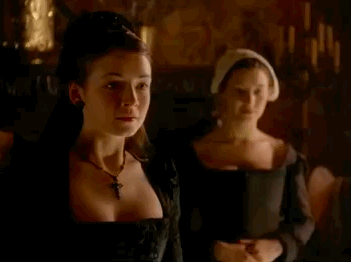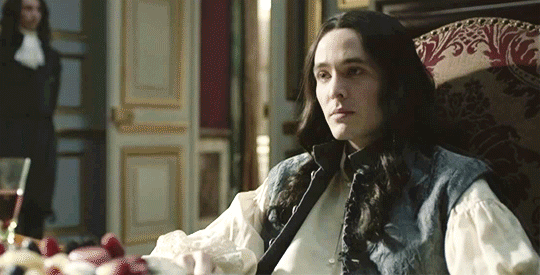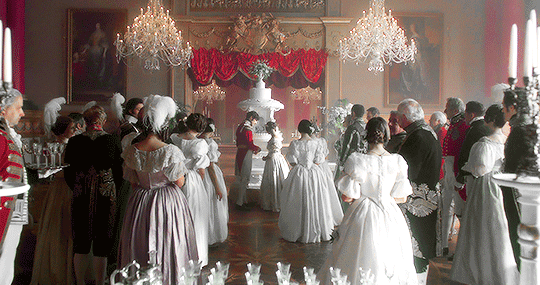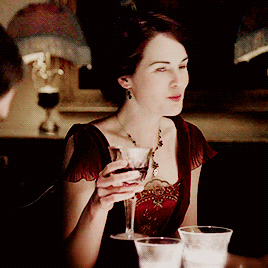#Fantasy Guide to earls/Countesses/counts
Explore tagged Tumblr posts
Text
Fantasy Guide to Earls/Counts and Countesses

(👆🏻The way they are both wifey 👆🏻)
This new series will offer an indepth view of each noble title in the standard European hierarchy of noble titles. Here we will discuss what they are, their lands, their jobs and everything you need to know when writing them.
What exactly is an Earl/Count/Countess?

A Earldom is the third highest rank in most noble hierarchies. The Count/Earl/Countess rules a section of land within the Kingdom known as a Earldom, for example the Earl of Desmond or can be a standalone title. A Earldom is inherited through the family line, from father to son but the title is bestowed on the family by the monarch. Monarchs can also give their children Earldoms if they wish but often grant them Dukedoms. The former Earl of Wessex, Prince Edward was the last Prince granted an Earldom but advanced to the Duke of Edinburgh after his father's passing and his brother's assent. Earldoms might also be the title of the heirs of Dukes or Marquesses. An Count/Earl/Countess's heir would likely be titled as a Viscount.
Titles, Titles

You will have noticed that Earl and Count are interchangeable. Earl is the English equivalent of Count, which is widely used on the Continent. An Earl or Count is addressed as Lord PlaceName. For example, Downton Abbey's Robert Crawley is The Earl of Grantham but he is referred to as Lord Grantham. The wife of an Earl or Count, is styled as Countess and she's referred to as Lady Placename. They would be addressed as Your Lordship and Your Ladyship.
Family of the Count/Earl/Countess

A Countess on her own right is referred to as the same but her make spouse does not become Count or Earl. He keeps his own title. As for same sex couples, again I remain on the dark here but I would think that they would take on their spouses' next highest title. The children of a Count/Earl/Countess is styled Lord/Lady Firstname with the heir taking on the title of Viscount/Viscountess or the next available title.
The Role of the Count/Earl/Countess

The Count/Earl/Countess is leader of the Earldom, which is a fairly large section of the kingdom. They are in control of this section, the highest power in law and order, politics and all things in that section with only the Duke or the Marquess and the monarch above. They handle administration at the highest level, raising troops from their earldom for the crown in times of war, see the collection of taxes and sometimes they might even advise the monarch if they are offered a place of the monarch's council. They would also attend the monarch at their coronation.
Cribs

Count/Earl/Countesses like a lot of nobility would have multiple houses, manors, estates etc. Their homes would be the grandest in the land and the social hubs for the Earldoms and even the country. A Count/Earl/Countess would sometimes live at court when invited but would also have the homes in the capital. This vast portfolio can become a source of income as the Count/Earl/Countess can rent them out or a handy way to shelf relatives who depended on them.
#Fantasy Guide to earls/Countesses/counts#Yes I've been rewatching Downton Abbey#Counts#Earls#Countesses#Nobility#Count#Earl#Countess#Guide to nobility#writing#writeblr#writing resources#writing reference#writing advice#writer#spilled words#writer's problems#writer's life#Writing help#Writing nobility#Writing royalty#Royalty
224 notes
·
View notes
Text
Fantasy Guide to Addressing Nobility
It can be hard to remember how to properly address your noble or royal characters when writing a fantasy court. Here is a quick guide:
King/Queen: Usually addressed as either "Your Grace" or "Your Majesty". Consort (married to a ruler and not reigning in their own right) can be addressed the same. Sire or Madam can be used also.
Prince/Princess: They are addressed as "Your Highness". They are NEVER addressed the same as a King or Queen
Duke/Duchess: These are addressed with "Your Grace". This was a common term also used by royalty before Henry VIII got too big for his codpiece.
Earl (Count)/Countess: Are almost never referred as the "Earl of Narnia" but "Lord Narnia".
Lord/Lady: An easy one. They are called "My Lord" or "My Lady".
Emperor/Empress: These may be equal to a King/Queen for status but they have a grander title. They are only addressed as "Your Imperial Highness/Majesty" by inky-duchess
47 notes
·
View notes
Text
Fantasy Guide to Court Etiquette

Manners are everything and when one is in high society, one must mind on what one says or does. Sending a character to court without the proper manners could be a death sentence or at least an embarrassing faux pas.
Greeting and Meeting

When greeting a member of a royal family or even a fellow noble, you must bow or curtsy. This is usually only once a day in modern royalty, meaning if you see that person all day, you might only have to bow once. The lower the bow, the higher the status of person. In some cultures one would have to bow to a portrait of the monarch if they weren't present.
But one should never approach a noble or royal that one has never met before. Nobles of rank must be introduced first. The noble of the higher rank was the one who made the first move. You must always answer a greeting- if you are a gentleman that is. Ladies had the luxury if ignoring a lord's greeting and getting away with it. It would still be considered rude but not as bad as an Earl ignoring a Duke's hello.
If you do not know who someone is at court, greet them with respect: My Lord/My Lady/Sir/Madam.
It is not appropriate to go up to someone and just begin a DMC with a stranger. At a certain age you were introduced to society. But at court, you must be introduced to a person before speaking to them.
Within the Royal Presence

When presented to a royal, you must bow and call the by their title. You can then switch to a less grand title while you talk to the royal. For example if you were to meet a Prince, you would bow/curtsy and say "Your Highness" or "Your Royal Highness" but for the rest of the convo, a simple Sir will do.
You are not permitted to sit in the presence of a royal unless invited to. If you did, you were to sit on a stool not a chair with arms. Only equals could do that. Sometimes this was determined by rank.
When taking you're taking your leave from a royal, you must ask permission to leave. If it is granted, you had to leave without turning your back on the royal.
When taking you're taking your leave from a royal, you must ask permission to leave. If it is granted, you had to leave without turning your back on the royal.
Precedent

This gets a heading on its own. Precedent is the order of which royalty and nobility walk into a room. This went from the monarch to the lowest lady. This is rough map.
The Monarch» The Consort» The Royal Children» The parent of the Monarch»The Other Royals (Assorted aunts, Uncles, Cousins)» Duke/Duchess » Marquess/Marchioness» Earl/Countess/Count/Comtesse » Viscount/Viscountess »Baron/Baroness» Lord/Lady
These ranks were sorted by wealth and importance and closeness to the throne.
Table Manners

When the Monarch eats, the court eats. But as soon as they are done, the court must stop what they are eating.
If a guest must leave the table and they're not done eating, they must their knife and fork on the plate. If they are, they must place the fork and knife at an angle, like 4:20 on a clock.
If you must leave the table, you do not need to explain why. You should just say "Excuse me". You need the Monarch's permission to leave.
If you are offered food and drink or a gift, you could not refuse it. You had to take what was offered.
(These are common rules taken from Medieval society to some modern ones.)
#writing#writer#writer's problems#spilled words#writer's life#spilled ink#my characters#writer probz#writers#characters#writer life#writing life#writer problems#words#writing reference#writing resources#writeblr#writing advice#writer's block#author life#character#write#fantasy writer#fantasy writing#original characters#writing advice writing resources#author's life#original character#author's problems
2K notes
·
View notes
Text
Fantasy Guide to Noble/Royal Family
Your story is packed full noble families and royals. Big complex, complicated families. How can one write so complicated a family. Easily. We are going to look into this step by step.
1. What in a name?
The surname of your family. This name us passed down from parent to child. It is a source of pride. Names can be as normal or as outlandish as you please. Again borrow from real life.

2. Power and lands
If your family is noble/royal, they will have lands and castles. What kind of home do they have/how many? How much power do they have? Money, influence and forces increase power. Make a scale from most powerful to least.

3. Honours and titles
What title do your family have? Duke/Duchess? Earl/Count/Countess? Most noble families have a title be it grand as a king or as small as a lord. How are they styled?
4. Arms
What symbols are used by your family. Yes this seems very ASOIAF- esque but historical and modern titled families have coat of arms. The Neville family of England display the bear and a ragged staff. The symbol of Ireland is a harp. Symbols can be sew onto banners and pressed into was seals. It is the calling card of any house. (This will be expanded on upon request via message)

5. Words and Mottos
Game of Thrones is famous for its house words: Winter is coming, Hear me Roar, Fire and Blood and We do not sow. Mottos show people who the family really are, their ideals and ambitions. Richard III had the motto of "Loyalty binds me", a fact that contests his evilness in my eyes. The Tudor Queens all had theirs: Elizabeth of York "Humble and penitent", Catherine of Aragon "Humble and Loyal", Anne Boleyn "The most happy", Jane Seymour "Bound to obey and serve", Katherine Howard "No other will but his". Choose a motto that reflects your family's real ambition.

6. History
What is your family's history? Explore who founded them, why they were founded, the trials and tribulations of the family and the family's highlights. You may not put it into the story put it is always good to know as you write.

7. Famous Ancestor
Any famous relatives? Most families will have one. Kit Harrington (Jon Snow) has an ancestor who invented the toilet. Famous ancestors can cause conflict and make a family's actions more meaningful. My famous ancestor is supposedly, Niall of the Nine Hostages who supposed captured the future St Patrick and brought him to Ireland.
#writing advice#writing resources#writing reference#writing template#noble families#royal families#writing#writer#spilled ink#spilled words#writer's problems#writer's life#writers#writer probz#my characters#words#writer life#writing life#writeblr#write#writer problems#writer's block#characters#author life#fantasy writer#author's life#character#fantasy writing#author#author's problems
1K notes
·
View notes